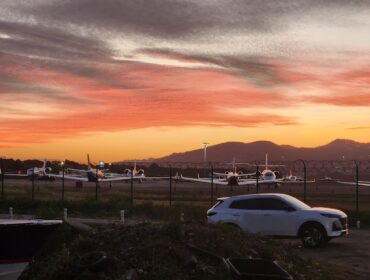The 2014-2018 Comprehensive Disaster Management (CDM)
Strategy and Programme Framework recently approved by Cabinet, seeks to further
institutionalise an integrated approach to disaster management in the British
Virgin Islands.
The strategy is designed to build resilience by
institutionalising and integrating the key concepts of disaster management, risk
reduction, climate change adaptation, energy conservation and gender within Government,
the private sector, communities and non-governmental and voluntary organisations.
Its preparation which got underway in 2013, included detailed monitoring
indicators to ensure the monitoring and evaluation of deliverables and
transparency of results.
Outlining the importance of this strategy, Acting
Governor, Mrs. V. Inez Archibald said, “It is important that any strategy on
disaster management have the full involvement of all sectors of society and all
levels of Government if we are to avoid loss of lives and, reduce the impact to
property and the fragile environment in which we live and work. This strategy reflects this approach and
includes a well-structured implementation mechanism which has received full
endorsement by Cabinet.”
Inspired and informed by the Pan American Health
Organisation’s SMART Hospital Initiative, the strategy is based on the development
of SMART communities that use sustained mitigation, adaptation and resilient
techniques to resist, absorb, accommodate and recover from the effects of
hazard impacts in a timely and efficient manner.
Explaining the SMART concept, DDM Director, Ms. Sharleen
DaBreo said, “It is intended to link both safe and green actions that
contribute to structural, non-structural and functional resilience as well as environmentally
sound actions that contribute to a small ecological and carbon footprint. In this regard, the strategy is closely
linked to the VI Climate Change Policy and will support the Ministry of Natural
Resources and Labour in the implementation of climate change adaptation and
alternative energy initiatives.”
The strategy was developed using an internationally
promoted results-based management approach that called for extensive
consultation with every sector and which translated their identified priorities
into intended and measurable results.
Further describing the strategy development process the
DDM Director said, “Benchmarks were captured during the implementation of
previous strategies and will be used to monitor and evaluate the progress of
this new strategy over the next five years.
The newly approved CDM Strategy and Programming Framework is expected to
be implemented by sector leads as part of their annual programming and is not
intended to be an additional administrative and financial burden. The strategy supports each sector in ensuring
that planned activities incorporate resilient and sustainable techniques and
practices.”
The DDM will support sector level activities through
the provision of data and technical advice; establishment of partnerships and
lobby regionally and internationally for resources to be used for the continued
development of the VI CDM Programme.
The newly
approved VI CDM Strategy and Programming Framework will require greater focus
on mitigating the impacts of hazards and adapting to the impacts of climate
change and climate variability; engagement of all communities; engagement of
major sectors; a better understanding among BVI residents of the notion of
community resilience along with a greater desire and urgency to take individual
actions and a better understanding and resolve among private and public sector
agencies to fulfill their role in
building resiliency and supporting preparedness in the BVI.
Implementation
of the strategy, the third of its kind for the Territory, will be given direct
oversight by the National Disaster Management Council and the Department of
Disaster Management.



